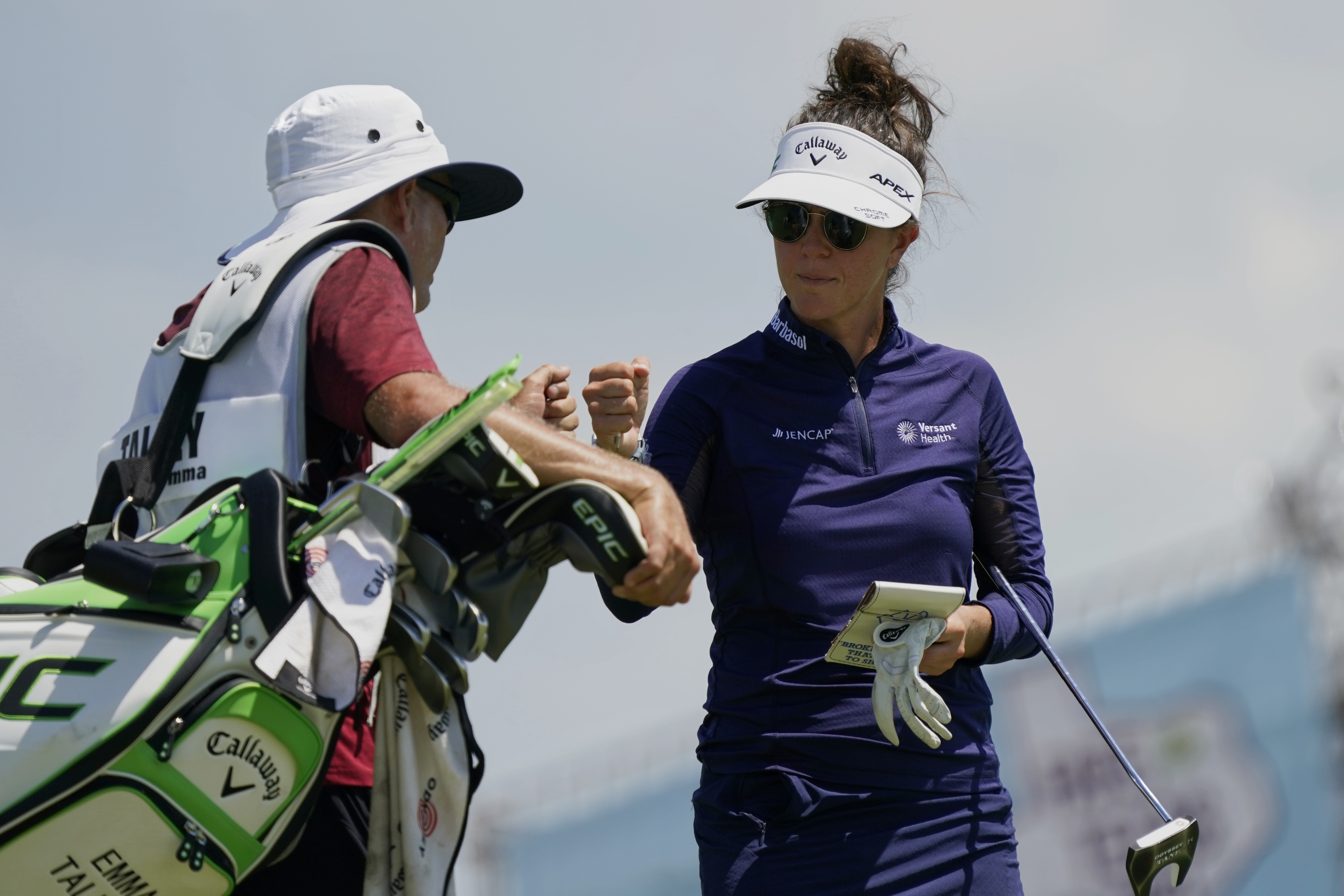Emma Talley wasn’t sure what she was thinking when she originally booked a flight back to Nashville in between LPGA tournaments in Texas and Ohio. But the hurried stopover turned out to be a blessing after she got into the Amundi Evian Championship field thanks to a career day in Dallas and needed to repack.
Talley was an alternate for the last major, the KPMG Women’s PGA in June, and didn’t get into the field. She did get a practice round in at Atlanta Athletic Club with good friend Austin Ernst, who said something along the lines of, “Your game is so good, what is going on?”
The pep talk from Ernst added fuel to a fire that had been reduced to fumes in recent months. Talley, a former NCAA and U.S. Women’s Amateur champion, joined the LPGA in 2018 and made 21 of 27 cuts that first season, earning $421,287 – a fine start for a rookie. But she didn’t win. And when Talley looked at the top players at the time – led by Ariya Jutanugarn – she decided that she needed to get longer to be successful.
“From there,” she said, “I lost my golf swing.”

Emma Talley holds up the Robert Cox Trophy after she defeated Yueer Cindy Feng 2 and 1 at the 2013 U. S. Women’s Amateur at Country Club of Charleston.
Talley developed a two-way miss in 2019 and missed 12 cuts. In 2020, she started swinging with her arms to keep the ball in play and actually lost distance, hitting pitching wedge only 105 yards.
Talley, who averages around 247 yards off the tee and ranks 138th, went back to her old coach, Todd Trimble, last December.
“He was like ‘What in the world have you done?’ ” recalled Talley. Trimble told her that rebuilding her golf swing would be a four-step process.
Talley’s short game coach, Gareth Raflewski, suggested she get in touch with sports psychologist Paul Dewland. Talley, one of the friendliest souls in golf, needed someone to talk to.
Talley had a big team in place. She went back to her roots and dug into what made her one of the best amateur golfers in the world. But the process was painfully slow. So slow, in fact, that she thought about quitting the game, though she couldn’t imagine what else she might do. She missed five consecutive cuts to start the season.
Talley phoned former Alabama coach Mic Potter and made a trip down to Tuscaloosa on Cinco de Mayo.
“She’d gotten kind of out of her footprint,” said Potter.
The veteran coach reminded her of what made her successful and what she needed to work on. Talley spent time talking to the current team as well.
“They enjoyed her immensely,” said Potter.
The feeling was mutual.
“Just seeing all those girls practice,” said Talley, “it just kind of motivated me and made me remember why I loved the game.”
Looking back, Talley wishes she’d just recognized that she’d know all the courses in her sophomore season on the LPGA and would likely pick up one or two strokes a week from that alone. It certainly would’ve saved a lot of heartache.
When Talley had put in the hard work but wasn’t getting results, her team kept reminding her to “water the plants.”
Slowly, she began to see some light.
“I knew it was back the last few weeks,” she said, “but it just took a few weeks for the fruitation.
“Is that a word?” she asked, laughing.
The fruits of Talley’s labor sprung forth at the Volunteers of America Classic, where she opened with a 65 and closed with a career-best 63, finishing in a share of fourth.
“I didn’t win this week,” she sad, “but in my mind I did.”

